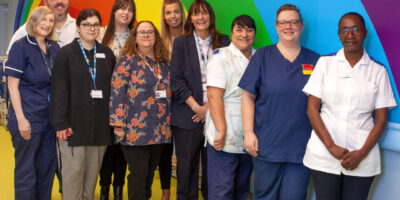 Screening is a way of identifying apparently healthy people who may have an increased risk of particular condition and saves thousands of lives each year. While potentially life-saving, unfortunately, not everyone takes up their invite.
Screening is a way of identifying apparently healthy people who may have an increased risk of particular condition and saves thousands of lives each year. While potentially life-saving, unfortunately, not everyone takes up their invite.
To encourage better uptake, the team from DBTH visit local groups, work places attend events and speak to members of the public about the screening process to encourage eligible men and women across the region to take up their free NHS screening and also look at ways of breaking down barriers which may affect a person’s decision to take part in screening.
Gill Pickersgill, Communications and Engagement Officer at the Trust, said: “Screening programmes save around 10,000 lives a year through prevention and earlier diagnosis. We know we have work to do to increase attendance in Sheffield which currently stands at 74.3% for Breast and 73.9% for Cervical. We know people live increasingly busy lives but it is so important to make time to attend these important appointments.”
Screening is a way of identifying apparently healthy people who may have an increased risk of particular condition.
Breast screening aims to find breast cancers early using an X-ray test called a mammogram that can spot cancers when they’re too small to see or feel. Women aged from 50 to their 71st birthday who are registered with a GP are automatically invited for breast screening every three years. Breast cancer can affect both men and women, so it’s important for everyone to be breast aware and to regularly check their breasts.
Cervical screening (smear test) checks the health of the cervix. It’s not a test for cancer, it’s a test to help prevent cancer. All women and people with a cervix aged 25 to 64 and registered with a GP are invited for screening. You will be invited every three years if you are aged 25 to 49. After that, you get an invite every five years until the age of 64. The symptoms of cervical cancer aren’t always obvious, it may not cause any symptoms at all until it’s reached an advanced stage and some women do not experience any signs of cervical cancer at all. This is why it’s very important that women attend all of their cervical screening appointments and if they do notice anything or have any concerns to speak to a GP.
Fatima Khan, Parents and Pupil Liaison Officer, said: “Thank you to the team for visiting the school. We had a lot of interest in the event and had around 30 mums attend. The event was very interactive with mums talking about their experiences and any barriers they’ve faced to attending screening. Hopefully the information and advice they were given will encourage them to attend their screening appointments.”



